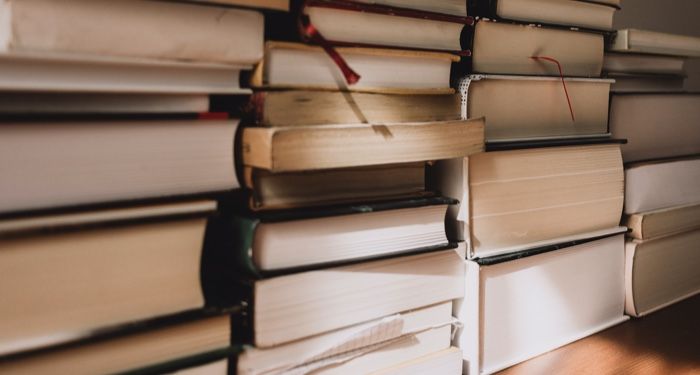
Why Is Publishing Plagiarism Still Possible?
When I was an obnoxiously precocious baby writer, I entered a short story competition for kids. I didn’t win, but my mum bought me an anthology of stories by the winning young writers. I read this book voraciously, trying to work out what it was about the stories that had made them winners while mine was a “better luck next time.”
One story was about a young boy and his imaginary monster friend outsmarting their smug uncle. As I read it, shock, then anger, swept over me. I’d read this story before, but not as part of a children’s writing competition. This winning story was lifted word-for-word from a chapter of a book I’d recently read at school. All the competition winner had done was change the names of the little boy and the imaginary monster.
That was my first encounter with plagiarism. I was stunned that grown-ups — grown-ups who worked with books, no less — could have been fooled by someone so blatantly stealing another person’s work. But sadly, publishing plagiarism is an ongoing problem – and it seems to be harder to deal with than other kinds of creative theft. YouTube videos are routinely scanned for unlicensed use of music or video clips, and college professors run essays through programmes like TurnItIn to check for plagiarised work. Spotting plagiarism in books, though, still seems to be a matter for eagle-eyed readers or wronged authors. Why, in a world where there’s an app or a programme for everything, is publishing plagiarism still possible?

Past Plagiarism Scandals
Plagiarism has existed for as long as literature has, and at many points in history, it wasn’t considered a big deal. Many of Shakespeare’s most famous plays, including Romeo and Juliet, were retellings of works by other writers, some recent enough that under modern laws, the Bard could have faced some tough legal questions. Modern copyright laws didn’t exist during Shakespeare’s time, but today, authors caught plagiarising can face severe legal and social consequences, and high-profile plagiarism cases become juicy ongoing scandals.
In 2019, romance novelist Nora Roberts filed a “multi-plagiarism” lawsuit against Cristiane Serruya, after romance novelist Courtney Milan and other romance readers argued that Serruya’s work plagiarised from multiple authors, including Milan herself. (In her counter-argument, Serruya stated that she had hired ghostwriters, and that if they had plagiarised any work, she was unaware of this).
Accidental plagiarism is, of course, possible — writers also tend to read widely, and a snappy sentence or lovely turn of phrase may stick in someone’s mind, hibernate there until its context is forgotten, and then reappear as a seemingly original thought. And for nonfiction writers, there’s a fine line between citing research and plagiarising sources that is sometimes difficult to tread, as famous biologist Jane Goodall found out when she blamed her “chaotic method of note-taking” for plagiarism accusations about her book Seeds of Hope.
Why Does Publishing Plagiarism Happen?
So why isn’t there a TurnItIn for publishers? The simple answer is, because literary and commercial publishing is such a vast area that it would be near-impossible to set up or maintain a database of existing texts online against which the programme could check new manuscripts. And even if this was possible, authors and publishers are generally working to avoid having manuscripts uploaded to the Internet, to avoid loss of sales and income as a result of piracy.
Instead, publishers and authors have to operate on trust, a system which often works. It’s important to remember that plagiarism accusations are relatively rare, and proven to be true even more rarely. There have been several cases reported as “plagiarism” that, after legal scrutiny, have turned out to be a case of similar ideas, tropes or motifs. For example, Dan Brown was accused of plagiarising The Holy Blood and the Holy Grail for his blockbuster The Da Vinci Code, but the case was dismissed. Drawing on another author’s ideas and theories does not constitute plagiarism; instead, authors have to closely copy the words used to meet the legal threshold.
How Can We Stop Plagiarism?
Because of the enormous numbers of books being published each year, the wish of publishers and authors to protect their copyrights, and the difficulty of sourcing and uploading old or out-of-print books, it seems that it would be impossible to automate an anti-plagiarism programme for publishing — and the cost of such a programme would be far more than pursuing plagiarism cases as and when they happen. Because of this, it’s likely that we will continue with current methods of spotting plagiarism: authors or readers raising awareness when they find passages in books that look a little too familiar.
It is particularly important to listen to low-profile and self-published authors, who are vulnerable to plagiarism, as they don’t have the backing of a publisher’s legal team behind them when it occurs. As Joy Lanzendorfer notes in The Rise of Plagiarism in the World of Self-Publishing, self-published authors who are plagiarised can find it difficult to find out the identity of their plagiariser in the first place, and then decide whether to pursue a legal case — a time-consuming and costly process.
While plagiarism is unlikely to ever go away, it can be challenged — and the rise of social media means that readers and authors who spot plagiarism can quickly call it out. Hopefully, the prospect of being exposed on Book Twitter will discourage plagiarists from stealing authors’ hard work going forwards.
For details on a couple of high-profile plagiarism cases, check out our article on Romancelandia, Intellectual Property, and Plagiarism, or our round-up of The Omegaverse Plagiarism Lawsuit.











